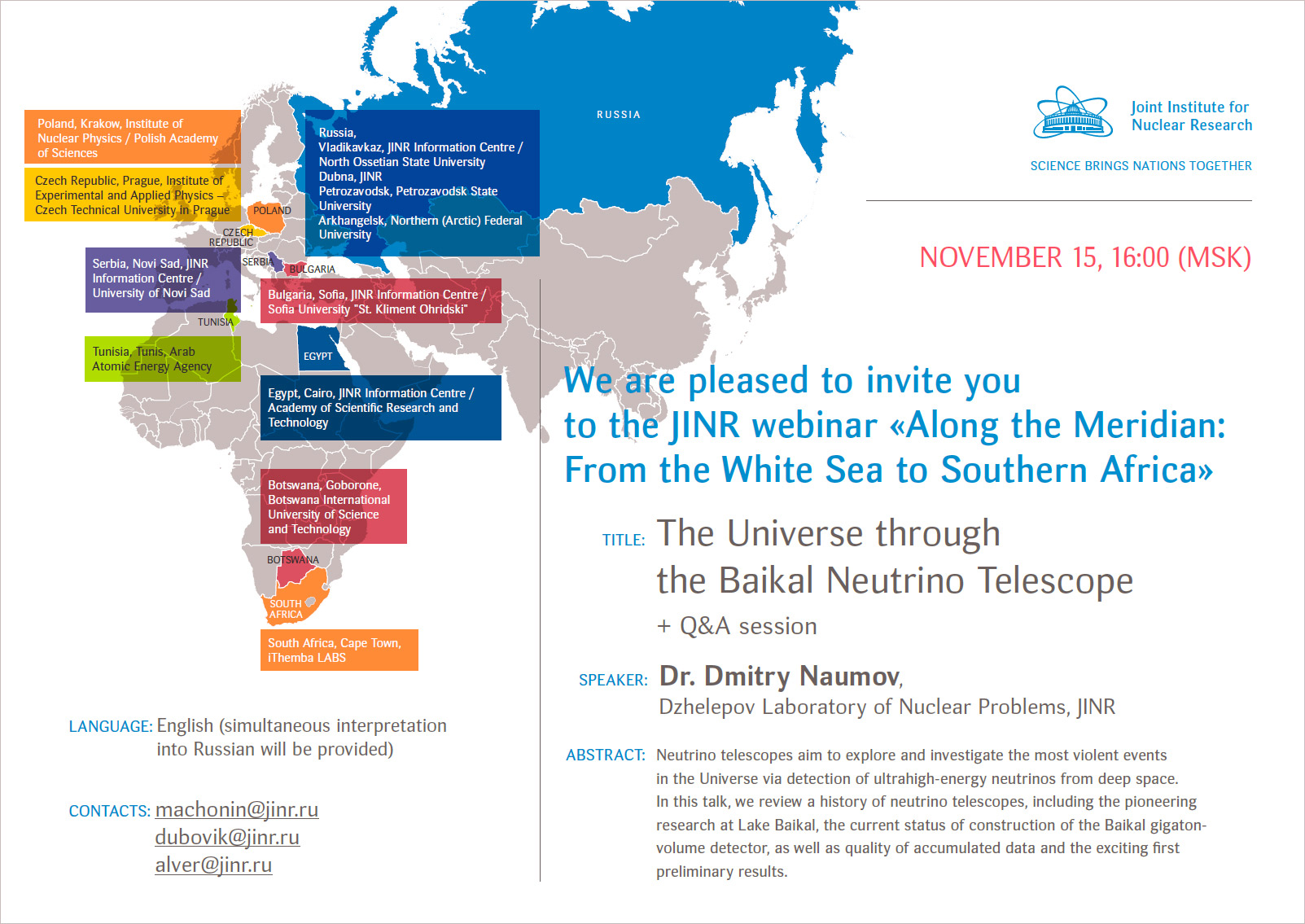First international IC webinar: The Universe through the Baikal Neutrino Telescope
Seminars
On 15 November 2021, at 4:00 PM (Moscow time), the first international IC webinar “Along the Meridian: From the White Sea to Southern Africa” will take place. It will unite several JINR Information Centres and the organizations planning to open such centres. Head of the JINR Neutrino Programme, Deputy Director of the Dzhelepov Laboratory of Nuclear Problems of JINR, Doctor of Physics and Mathematics Dmitry V. Naumov will make a report “The Universe through the Baikal Neutrino Telescope”.
This international webinar is the first in the series of educational online events aimed to provide opportunity to communicate with already existing and emerging JINR Information Centres (Vladikavkaz, Sofia, Cairo, Cape Town, Petropavlovsk-Kamchatsky, Vladivostok, and others) and their partners. This will make it possible to present scientific projects and experiments of JINR to the widest possible community not only in the Member States but also in other places around the world where there is a rising interest in our Institute.
Programme:
- Welcome Address of Scientific Leader of JINR Academician Victor Anatolyevich Matveev
- Experience of JINR Information Centres: in Vladikavkaz (Russia) — Nelli Pukhaeva, Cairo (Egypt) – Dr Mohamed Ash, Sofia (Bulgaria) — Dimitar Mladenov.
- About future information centres: IAEA (Tunisia) – Dr Nahla Nasr, iThemba LABS (South Africa) – Dr Rudzani Nemutudi
- Lecture by Dmitry Vladimirovich Naumov “The Universe through the Baikal Neutrino Telescope”
- Question and answer session
Abstract of the lecture by Dmitry V. Naumov:
Neutrino telescopes aim to explore and investigate the most violent events in the Universe via detection of ultrahigh-energy neutrinos from deep space. In this talk, we review a history of neutrino telescopes, including the pioneering research at Lake Baikal, the current status of construction of the Baikal gigaton-volume detector Baikal-GVD, as well as quality of accumulated data and the exciting first
preliminary results.
